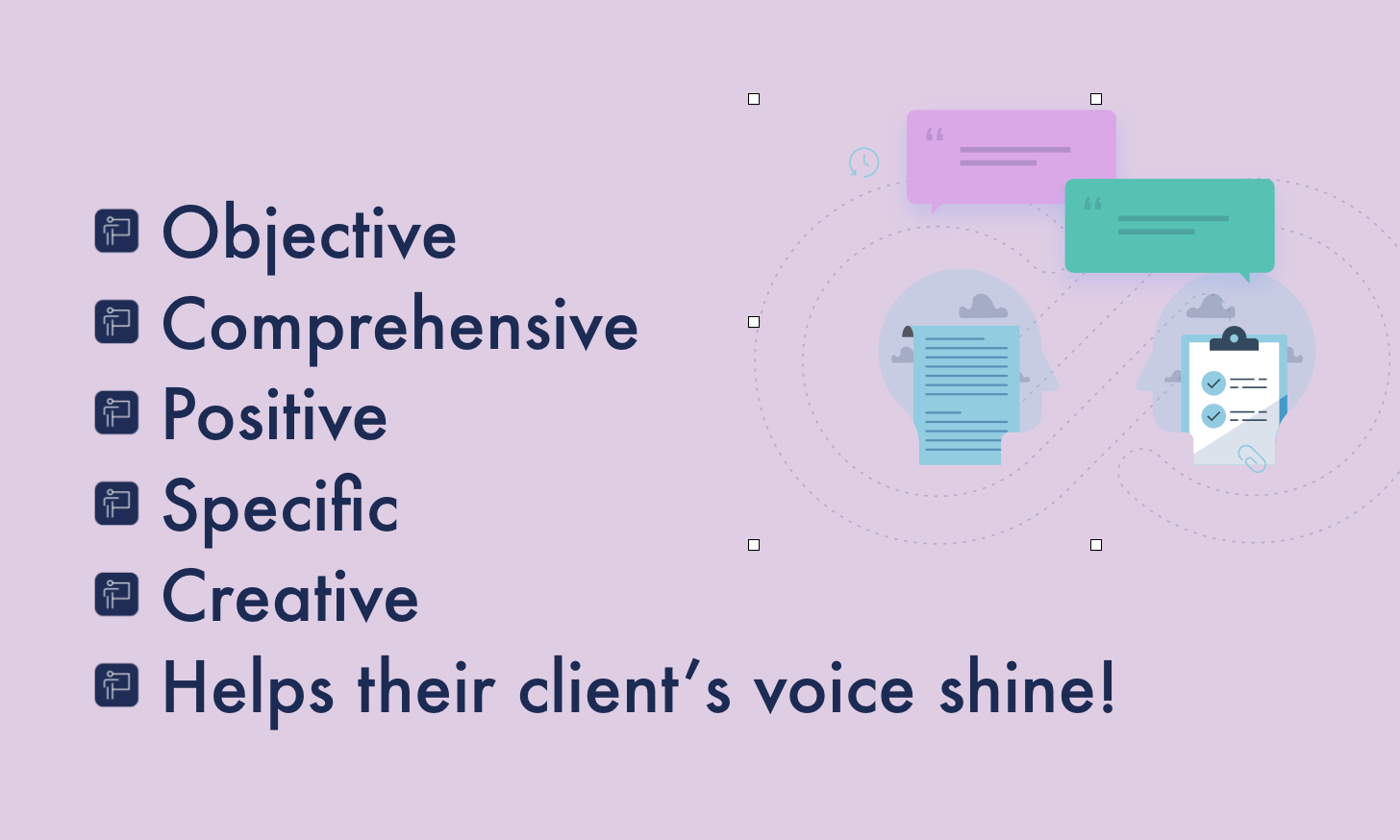A story coach helps a writer create a powerful story that resonates with readers because its structure will be in the form that resonates with how the human brain connects to stories.
Substantive, developmental, and structural editing all mean the same thing when we’re referring to long-form fiction. We call all of these Story Editing because we are evaluating the story, not the words. Story Coaching is done by an editor who is performing a story edit.
Editing is sometimes thought of as changing a poorly written phrase into a better one. Story editing is so much more. It means looking at the characters and asking why each one is in the story. It means looking for patterns, finding emotion, evaluating the structure of scenes, chapters and word count. It means testing the setting against the plot and so on.
A Story Coach evaluates:
- The story arc
- Word count – for your genre and per scene
- The structure of scenes per chapter
- Characters
- Plot
- Settings
- Story flow and pacing (Scene openings and scene endings)
- Consistency and clarity
- Theme
After a Story Edit the author will end up rewriting scenes in their manuscript to improve content and structure. This is the most time-consuming step of revising a story, however, the effort spent on evaluating and rewriting a draft will ensure a story makes sense and is ready to copyedit, proofread, and share.
Story Coach Attributes

A Story Coach Helps Powerful Stories Come Into the World
Scientific research has proven good stories benefit both readers and writers. A study in Nature Communications – International Journal of Science explains why storytelling is a powerful means of fostering social cooperation and teaching social norms, and it pays valuable dividends to the storytellers themselves, improving their chances of being chosen as social partners, receiving community support, and even having healthy offspring.
In the Creativity Research Journal, scientists report their discovery that exposure to fiction, unlike exposure to nonfiction, predicts a more positive performance on a variety of social ability measures.
Studies in neuroscience reveal the human brain is wired to respond to story. University of California research shows that the pleasure humans get from a well-told story is evolution’s way of getting the human to pay attention to the story.
Combined, the above research supports the premise that those who are good storytellers have a better chance to be successful in life. The means…
You’re helping your client not only tell a powerful story, you’re also helping them be more successful.
That’s quite the responsibility. There’s no need to be nervous if you have the best tools in place to support you. StoryCoach is the best tool to help you be comprehensive and objective, and know you’re helping the writer tell a better story.
What Should a Story Coach Deliver to a Writer?
A story edit is the most difficult type of edit to perform. It requires a strong knowledge of what makes a powerful story, creativity, objectivity, discipline, and hard work.
A great story coach provides:
- A summary letter explaining what is great in a story and what needs work. The letter should include explanations of each recommendation.
- Notes on a per scene level.
- Inline comments with recommendations at the sentence level. This does not mean commenting on styles, it means commenting on structure.
- Inline additions and deletions using track changes.
- Copyediting only when there is a repetitive mistake of breaking a grammar rule or style rule. For example, not starting a new paragraph for each new speaker.
- Writing advice tailored to issues found in the manuscript.
What a Story Coach Should Not Provide
- An in-depth line edit or copyedit.
A writer is paying for a high-end story edit. Unless the story is almost perfect, a Story Coach should deliver recommendations that cause a writer to change their story, revise scenes, move scenes around, cut in places, and add depth in others. This means the writer will be revising large amounts of text, so why line edit and copyedit things that are going to be changed. This is a waste of time and money both for the writer and the Story Coach.
Another reason not to focus on line editing and copyediting is that both are different skills from story editing. An editor who is focussing too much on the word or sentence level is probably not focussing enough on the story.
The Goal of Story Coaching
A Story Coach helps writers tell a better story and makes the writer’s voice shine!
More Reading:
How an editor creates trust with a writer.
How and editor can phrase feedback to motivate a writer.
Why a Story Coach needs a blurb.
University of California. J. Tooby and L. Cosmides, 2001. Does Beauty Build Adapted Minds Toward An Evolutionary Aesthetics, Fiction and the Arts 2001: 6-27.
Nature Communications – International Journal of Science: Cooperation and the evolution of hunter-gatherer storytelling: Article 1853 2017.
Creativity Research Journal. Maja Djike, Keith Oatley, Sara Zoeterman, Jordan B Peterson “On Being Moved by Art: How Reading Fiction Transforms the Self” 21, no 1 (2009): 24-29.
![]()
A Fictionary StoryCoach helps writers tell a powerful story and makes the writer’s voice shine! You can now try Fictionary StoryCoach for editors for free!
And there’s more. The Fictionary Certified StoryCoach training is available.
Do you want to become a Fictionary Certified StoryCoach? Check out Fictionary Certified StoryCoach Training.
If you’d like to take the training, send me (Kristina) an email at helpful.editor@temp-fictionary.flywheelstaging.com telling me why you’d like to become a Fictionary Certified StoryCoach.
The Fictionary StoryCoach Certification training program helps editors deliver a comprehensive and objective editorial package using StoryCoach software.
We developed this training for two reasons.
- The first is for fiction editors to have a place to learn how to perform a high-quality story edit, get certified, and then have a tool (StoryCoach) that helps them perform exceptional story edits.
- The second is for writers to know they are dealing with a professional editor who understands story when they hire a Fictionary Certified StoryCoach.

